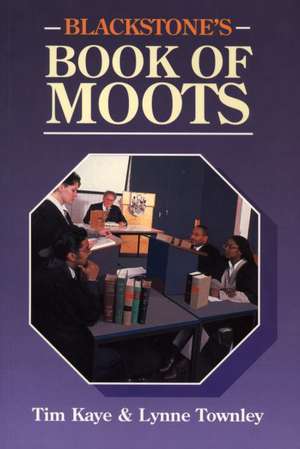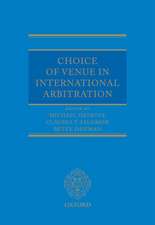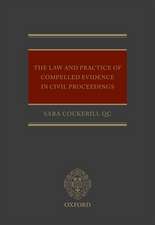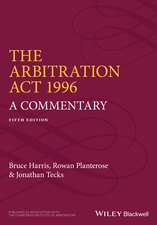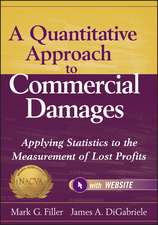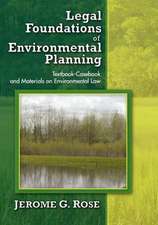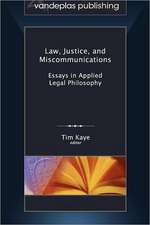Blackstone's Book of Moots
Autor Tim Kaye, Lynne Townleyen Limba Engleză Paperback – iun 1996
Preț: 331.39 lei
Preț vechi: 432.59 lei
-23% Nou
Puncte Express: 497
Preț estimativ în valută:
63.42€ • 65.65$ • 53.60£
63.42€ • 65.65$ • 53.60£
Carte tipărită la comandă
Livrare economică 22-28 februarie
Preluare comenzi: 021 569.72.76
Specificații
ISBN-13: 9781854315168
ISBN-10: 1854315161
Pagini: 212
Dimensiuni: 157 x 235 x 11 mm
Greutate: 0.33 kg
Ediția:1
Editura: OUP OXFORD
Colecția OUP Oxford
Locul publicării:Oxford, United Kingdom
ISBN-10: 1854315161
Pagini: 212
Dimensiuni: 157 x 235 x 11 mm
Greutate: 0.33 kg
Ediția:1
Editura: OUP OXFORD
Colecția OUP Oxford
Locul publicării:Oxford, United Kingdom
Cuprins
Section 1 Part 1 What is mooting and why is it important?: what is mooting?; why is mooting important?; the advantages of mooting. Part 2 How to organize a mooting competition: who is responsible?; getting the competition off the ground; organizing the competition; which rules should be adopted?; who moots when?; which moot problems; what information should be provided for the mooters?; which judge?; where?; a few days before the competition; on the day of the moot; during the moot; after the moot; a quick check-list for the moot organizer; before each moot; send the following to all the mooters; other arrangements; after the moot. Part 3 How to prepare for a moot: where to start?; which books should be consulted first?; how to research a topic without initial references; what about LEXIS?; how to put information together. Part 4 How to write a moot court speech: where to start; addressing the court; best practice when on your feet; dealing with judicial interventions; referring to law reports; refe
Notă biografică
Dr Tim Kaye is a Lecturer in Law at the University of Birmingham where he is the staff member responsible for mooting. Lynne Townley is a barrister working in legal publishing.
